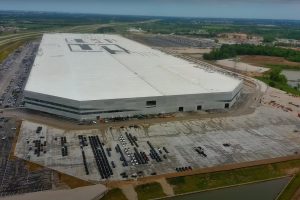In a recent announcement, China authorities noted that automakers must apply for licenses if their vehicles collect geographic data. Such a rule would likely affect numerous carmakers in the country, especially those that roll out intelligent vehicles, such as Tesla China.
The announcement highlights China’s focus on security and Beijing’s growing concerns about the capabilities and data-gathering functions of vehicles. The announcement is a clarification of China’s surveying and mapping law, and it reflects the country’s efforts to prevent scenarios where data collected by smart cars fall into the hands of hostile foreign entities.
As noted in a Reuters report, the rules would be effective since publication. With this in mind, companies that produce smart vehicles, such as Tesla China and other domestic electric car makers, would have to take an extra step to ensure that their vehicles are fully compliant with the country’s rules.
It should be noted that companies like Tesla China are already advised to seek partnerships with Chinese firms for the collection and processing of their vehicles’ data.
A statement from the Ministry of Natural Resources indicated that carmakers seeking to develop and deploy autonomous driving systems are advised to apply for mapping licenses, which would give permission for vehicles to gather data. If not, automakers could work with a licensed company to collect, store, transform, and process geographic data.
The ministry noted that the rapid development of the country’s intelligent and connected vehicle industry suggests that a “safety bottom line” needs to be drawn for “real-time high-precision coordinates, high-definition images, and other data support.” Advanced vehicles, particularly those that are extremely popular in China, need to collect massive amounts of geographical data to create high-precision maps, which are essential for safe and accurate navigation.
So far, more than 20 companies have secured mapping licenses in China. These include search engine Baidu, which has an active autonomous driving vehicle program, and Navinfo, a mapping company backed by Tencent, one of Tesla’s largest shareholders.





